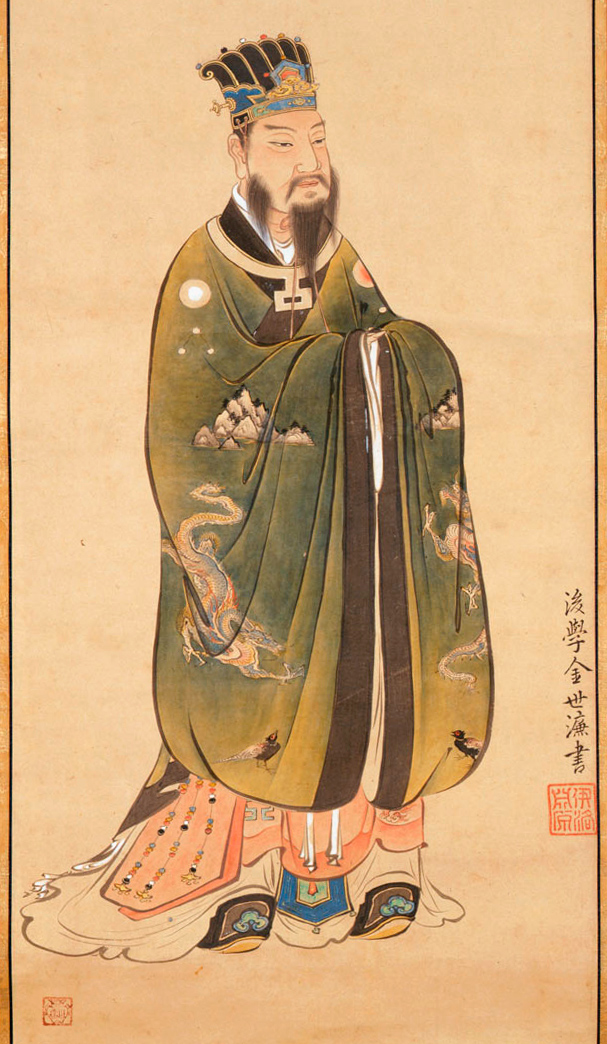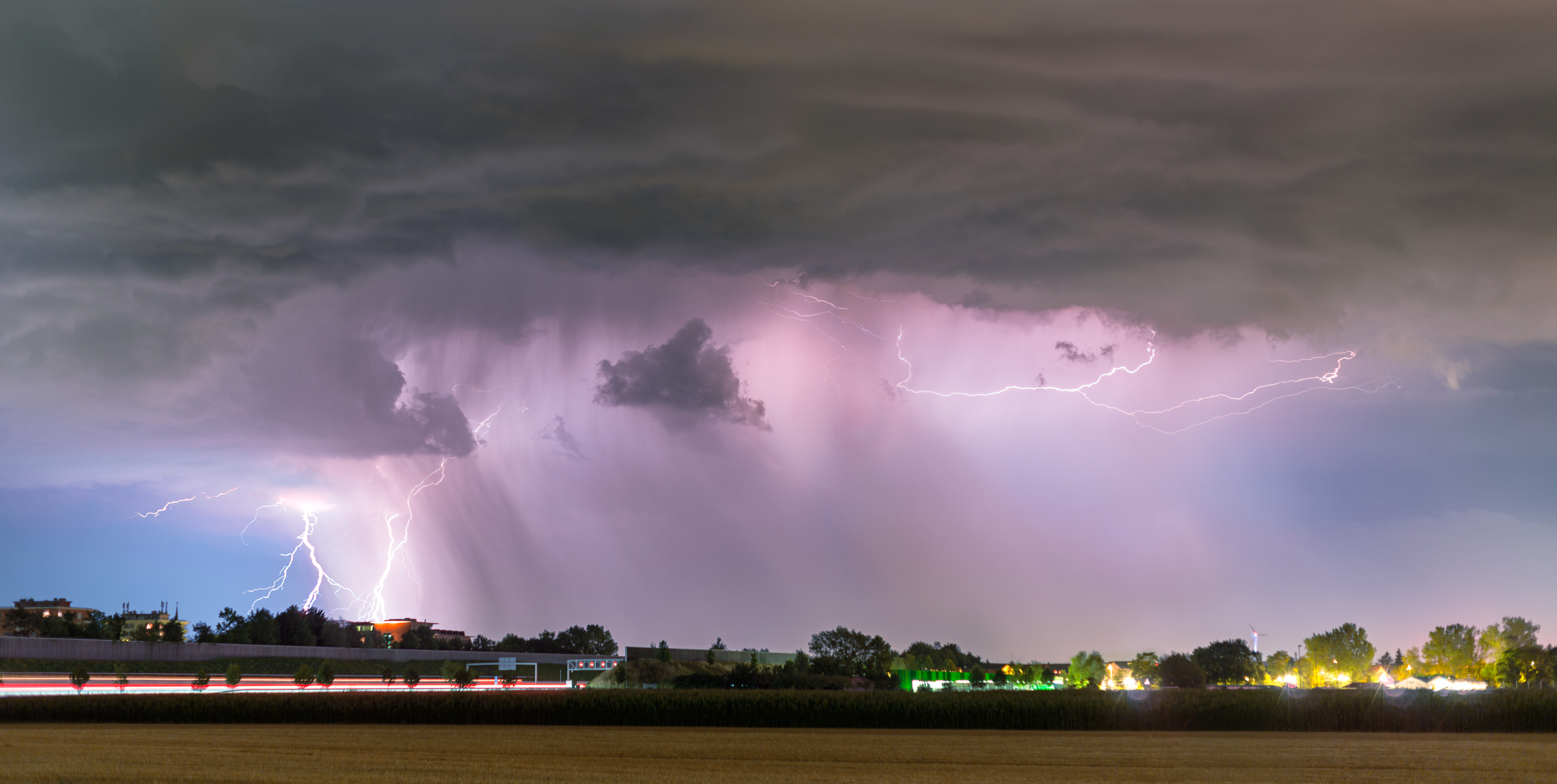|
Leizhenzi
Leizhenzi ( zh, c=雷震子, p=Léizhènzǐ) a character in the classic Chinese novel ''Investiture of the Gods'' (''Fengshen Yanyi''). Leizhenzi is a celestial being that had been created by a great thunderstorm at Mount Swallow. Ji Chang had been the one to first receive the small newborn and thus the baby became known as the third son of Ji Chang. However, Yunzhongzi would take the newborn in as his own disciple; for he was destined to assist in the creation of the new Zhou Dynasty. Seven years later, at a time in which Ji Chang was fleeing for his life from the capital after finally being freed, Leizhenzi, now seven, was sitting with his master, Yunzhongzi, atop Mount South End. Once Leizhenzi was told to assist his father, but first grab a hold of his weapon - which was by the cliff's edge - Leizhenzi looked everywhere in wonder. Soon enough, Leizhenzi found two large apricots at the edge of the cliff and ate them both with due haste. Immediately following this, to his surp ... [...More Info...] [...Related Items...] OR: [Wikipedia] [Google] [Baidu] |
Leigong
Leigong () or Leishen (), is the god of thunder in Chinese folk religion, Chinese mythology and Taoism. In Taoism, when so ordered by heaven, Leigong punishes both earthly mortals guilty of secret crimes and evil spirits who have used their knowledge of Taoism to harm human beings. He carries a drum and mallet to produce thunder, and a chisel to punish evildoers. Leigong rides a chariot driven by a young boy named A Xiang. Since Leigong's power is thunder, he has assistants capable of producing other types of heavenly phenomena. Leigong's wife Dianmu is the goddess of lightning, who is said to have used flashing mirrors to send bolts of lightning across the sky. Other companions are Yun Tong ("Cloud Youth"), who whips up clouds, and Yu Shi ("Rain Master") who causes downpours by dipping his sword into a pot. Roaring winds rush forth from a type of goatskin bag manipulated by Fengbo ("Earl of Wind"), who was later transformed into Feng Po Po ("Lady Wind"). Iconography Leigong i ... [...More Info...] [...Related Items...] OR: [Wikipedia] [Google] [Baidu] |
Yunzhongzi
Yunzhongzi () is a character from the famed classic Chinese novel ''Fengshen Yanyi''. Yunzhongzi is a renowned immortal of the Jade Column Cave atop Mount South End. After the sinister Daji had taken her grasp over King Zhou of Shang, Yunzhongzi was the first immortal to see the injustice from above the clouds. After Yunzhongzi realized that this was none other than the Thousand-Year Vixen, he exclaimed the words "''If she is not eliminated, great disaster will befall the Red Dust! I must prevent this from happening!''" Following this event, Yunzhongzi presented himself before King Zhou. After the king had asked for Yunzhongzi's home, Yunzhongzi responded by saying that he is from water--heart of cloud, mind of fluidity. Thus following this point, Yunzhongzi would engage in a great reformative conversation with the king in the hopes that he would be rid of Daji and employ the Taoist way to his kingdom. Before Yunzhongzi left the king, he handed him his wooden sword, a sword that wou ... [...More Info...] [...Related Items...] OR: [Wikipedia] [Google] [Baidu] |
Ping Sien Si - 044 Le Izhen Zi (16109515406)
Ping may refer to: Arts and entertainment Fictional characters * Ping, a domesticated Chinese duck in the illustrated book '' The Story about Ping'', first published in 1933 * Ping, a minor character in ''Seinfeld'', an NBC sitcom * Ping, a character in the webcomic ''Megatokyo'' * Ping, the disguised identity of Hua Mulan in the animated film ''Mulan'' * '' Ping the Elastic Man'', a comic strip character introduced in ''The Beano'' in 1938 * "The machine that goes ''Ping!''", a fictitious obstetric medical device featured in the film ''Monty Python's The Meaning of Life'' * Mr. Ping, a character in the ''Kung Fu Panda'' franchise * Professor Ping, a character in the film '' Barbarella'' * Ping, a character in Carole Wilkinson's novel ''Dragonkeeper'' Other uses in arts and entertainment * "Ping" (short story), by Samuel Beckett * ''Ping!'', a 2000 film featuring Shirley Jones * Ping.fm, a microblog social network * Ping, an ability in the trading card game ''Magic: The Gat ... [...More Info...] [...Related Items...] OR: [Wikipedia] [Google] [Baidu] |
Investiture Of The Gods
''The Investiture of the Gods'', also known by its Chinese names () and is a 16th-century Chinese novel and one of the major vernacular Chinese works in the gods and demons (''shenmo'') genre written during the Ming dynasty (1368–1644). Consisting of 100 chapters, it was first published in book form between 1567 and 1619. Another source claims it was published in 1605. The work combines elements of history, folklore, mythology, legends and fantasy.Chew, Katherine Liang (2002). ''Tales of the Teahouse Retold: Investiture of the Gods''. Page XI. . The story is set in the era of the decline of the Shang dynasty (1600–1046 BC) and the rise of the Zhou dynasty (1046–256 BC). It intertwines numerous elements of Chinese mythology, including deities, immortals and spirits. The authorship is attributed to Xu Zhonglin. Plot The novel is a romanticised retelling of the overthrow of King Zhou, the last ruler of the Shang dynasty, by Ji Fa, who would establish the Zhou dy ... [...More Info...] [...Related Items...] OR: [Wikipedia] [Google] [Baidu] |
Ji Chang
King Wen of Zhou (; 1152–1050 BC, the Cultured King) was Count of state of Zhou, Zhou during the late Shang dynasty in ancient China. Although frequently confused with his fourth son Duke of Zhou, also known as "Lord Zhou", they are different historical persons. Although it was his son King Wu of Zhou, Wu who conquered the Shang following the Battle of Muye, Count Wen was posthumously honored as the founder of the Zhou dynasty and posthumously titled King. Many of the hymns of the ''Classic of Poetry'' are praises to the legacy of King Wen. Some consider him the first epic hero of Chinese history. Archaeology Chinese scholars (e.g. Wang Yunwu (:zh:王雲五, 王雲五), Li Xueqin (:zh:李学勤, 李学勤), etc.) identified King Wen with a mentioned in inscriptions H11:82 & H11:84 among oracle bones excavated at Zhouyuan (), Qishan County. Biography Born Ji Chang (), Wen was the son of Tai Ren, Tairen and King Ji of Zhou, Ji Jili, the Count of Predynastic Zhou, Zhou, a vassal ... [...More Info...] [...Related Items...] OR: [Wikipedia] [Google] [Baidu] |
Zhou Dynasty
The Zhou dynasty ( ; Old Chinese ( B&S): *''tiw'') was a royal dynasty of China that followed the Shang dynasty. Having lasted 789 years, the Zhou dynasty was the longest dynastic regime in Chinese history. The military control of China by the royal house, surnamed Ji, lasted initially from 1046 until 771 BC for a period known as the Western Zhou, and the political sphere of influence it created continued well into the Eastern Zhou period for another 500 years. The establishment date of 1046 BC is supported by the Xia–Shang–Zhou Chronology Project and David Pankenier, but David Nivison and Edward L. Shaughnessy date the establishment to 1045 BC. During the Zhou dynasty, centralized power decreased throughout the Spring and Autumn period until the Warring States period in the last two centuries of the dynasty. In the latter period, the Zhou court had little control over its constituent states that were at war with each other until the Qin state consolidated power and forme ... [...More Info...] [...Related Items...] OR: [Wikipedia] [Google] [Baidu] |
God Of Thunder
Polytheistic peoples from many cultures have postulated a thunder god, the personification or source of the forces of thunder and lightning; a lightning god does not have a typical depiction, and will vary based on the culture. In Indo-European cultures, the thunder god is frequently known as the chief or King of the Gods, e.g. Indra in Hinduism, Zeus in Greek mythology, and Perun in ancient Slavic religion. Thunder gods Mediterranean * God in Abrahamic religions * Teshub (Hurrian mythology) * Adad, Bel, Ishkur, Marduk ( Babylonian-Assyrian mythology) * Baʿal, Hadad ( Canaanite and Phoenician mythology) * Set (Egyptian mythology) * Aplu (Hurrian mythology) * Tarḫunna (Hittite mythology) * Tarḫunz (Luwian mythology) *Vahagn (Armenian Mythology) *Zibelthiurdos (Thracian mythology) * Zeus (Greek Mythology) * Jupiter (Roman Mythology) * Northwestern Eurasia * Armazi (god) Georgian Mythology * Afi ( Abkhaz Mythology) * Ambisagrus, Loucetios (Gaulish mythology) * A ... [...More Info...] [...Related Items...] OR: [Wikipedia] [Google] [Baidu] |
.jpg)
%2C_dated_1542.jpg)


